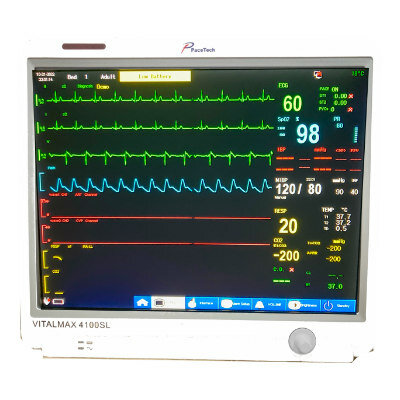Critical Care


Pulsed Field Ablation System Offers Unique Alternative to Standard-Of-Care Thermal Ablation Treatment
A groundbreaking system offers a new alternative to conventional thermal ablation treatments for isolating pulmonary veins in patients with drug-refractory, symptomatic, persistent atrial fibrillation. More...01 Feb 2024


World's First Safe Electric Drug Infusion Pump to Prevent Medical Accidents
Researchers have developed the world's first drug infusion pump with a safe medication administration detection technology to prevent medical mishaps caused by the over-administration of pain relief medication during or post-surgery. More...31 Jan 2024

Wearable Cardioverter Defibrillator Protects Patients at High Risk of Sudden Cardiac Arrest
A novel wearable patch defibrillator is designed to address the limitations with garment-based wearable cardioverter defibrillators, paving the way for enhanced protection of patients with elevated risk of sudden cardiac arrest. More...30 Jan 2024
.jpg)
In Other News
First and Only Technology Uses Smartphone to Detect Heart Disease in One Minute at POC
AI Algorithm Monitors Vital Signs and Lab Results to Detect Sepsis before Symptom Onset
Bioengineered Material Rapidly Stops Bleeding During Surgery in Patients on Blood Thinners
First Dedicated Leaflet Modification Device Enables TAVR in Patients at Risk of Coronary Obstruction
Breakthrough Digital Technology Solutions to Improve Heart and Brain Health Globally
Tiny Device in Ear Canal Monitors Heart Health in Real Time
AI Predicts Death and Complications in Angioplasty and Stent Patients
AI Tool Accurately Predicts Kidney Injury Signs In Critically Ill Patients
Self-Propelling Nanorobots Reduce Bladder Tumors by 90%
Novel Heart Transplant Procedure Demonstrates Valve Growth and Functionality
Injectable Hydrogel Electrodes Offers Ground-Breaking Treatment Regimen for Arrhythmia
AI-Enabled Digital Stethoscope Detects Pregnancy-Related Heart Disease
Wearable Sensor Accurately Measures Biomarker Concentrations in Sweat Samples
First Wearable Platform Allows Physicians to Offer Patients Full Routine Cardiopulmonary Examinations
Innovative Catheter Design Prevents Bacterial Infections
AI-Enabled ECG Analysis Effectively Predicts Right-Side Heart Issues
Pioneering Minimally Invasive Technique Promises Safer Heart Valve Procedure
ECG Vest Allows For Non-Intrusive, Non-Invasive Heart Monitoring
Tissue-Integrated Sensitive Glucose Nanosenor to Revolutionize Diabetes Management
Biosensor Technology Detects IV Extravasation Events during Iron Infusions
First-Ever Fully Implantable System Designed To Treat Chronic Migraine
Wearable Ultrasound Non-Invasively Treats Chronic Limb-Threatening Ischemia
Fully Implantable, Wirelessly Charged Device Treats Recurrent or Refractory Ascites Due to Liver Cirrhosis
HospiMedica Critical Care channel provides timely reporting on emergency medicine, intensive care, anesthesia, neonatal care, patient monitoring, respiratory care, infection control, and more hospital related subjects.











